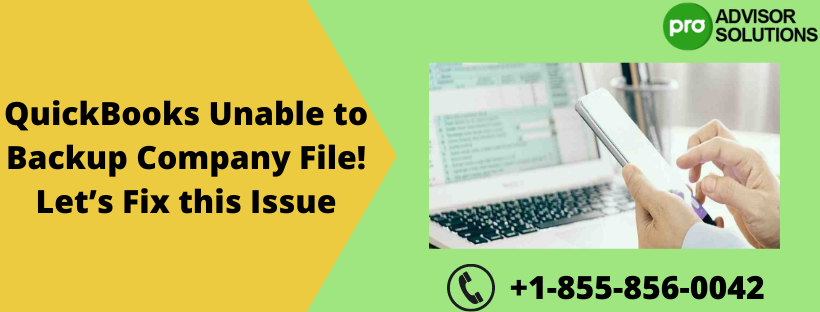These popular plans may have hidden risks. This is what you need to know.
If you’re one of the 63 million Americans enrolled in Medicare, you’re likely to be flooded with offers for Medicare Advantage plans, which offer managed care at low or no premiums.
Medicare’s fall open enrollment season begins October 15 and ends December 7, when you can switch your coverage between Original Medicare and Medicare Advantage, switch Medicare Advantage plans, or make changes to your prescription drug plan.
All that advertising seems to be working. Recently, 42% of Medicare beneficiaries signed up for Advantage plans, compared to 31% in 2016, according to data from the Kaiser Family Foundation. Those numbers include 50% of African Americans and 54% of Hispanics enrolled compared to 36% of whites in 2018. By 2025, half of Americans are expected to have Advantage plans.
It’s easy to see the appeal of Advantage. Original Medicare doesn’t cover all medical expenses, while Advantage plans have cost-sharing requirements but limit out-of-pocket costs. Plus, they have low premiums and the simplicity of comprehensive coverage.
But Advantage plans can have hidden risks, especially for those with major health problems.
“Some people on Medicare Advantage end up paying unexpected costs when they get sick or find their network doesn’t have the health care providers they need,” says Tricia Neuman, senior vice president at Kaiser.
Your alternative is to choose Original Medicare and add a supplemental or Medigap plan, which covers your out-of-pocket expenses and offers you a greater choice of providers. But you’ll have to pay additional monthly premiums for a Medigap policy, and unless you’re signing up for Medicare for the first time, you could be denied Medigap coverage because of a pre-existing condition.
Choosing the right option for your needs requires careful research. The following tips can help you choose the best plan for you.
How Medicare Advantage Plans Work
First of all, it is worth reviewing some basic concepts. Medicare is divided into four parts: Part A covers inpatient hospital care and skilled nursing care. There is no premium if you or your spouse have earned at least 40 Social Security credits.
Part B covers physician services and outpatient hospital care. There is a monthly premium to pay for this coverage, which in 2021 is $148.50, with a deductible of $203. People with higher incomes pay more.
The other parts of Medicare, Part C, also known as Medicare Advantage, and Part D, prescription drug coverage, are optional and offered by private insurers.
Medicare Advantage is an all-in-one managed care plan, usually by an HMO or PPO. Advantage plans offer the benefits of Parts A and B, and most also include Part D or prescription drug coverage. Some offer extra benefits not available through Original Medicare, like fitness classes or dental and vision care.
If you choose Medicare Advantage, you’ll usually continue to pay your Part B premium as usual, but you’ll pay little or nothing extra for coverage. You usually have copays or coinsurance, but once you reach the out-of-pocket limit, the plan will pay 100% of your Medicare-covered medical expenses for the rest of the year. The out-of-pocket limit does not apply to prescription drugs or additional benefits.
To keep premiums low, Advantage plans generally require you to receive your care from a network of doctors, hospitals, and other providers, and you often need prior authorization for specialty care.
Original Medicare doesn’t have an annual out-of-pocket limit, and for Part B services, you’ll have to pay 20% of costs after the deductible. That’s why many seniors with Original Medicare also buy a Medigap plan, which covers those out-of-pocket costs if they don’t receive supplemental benefits from a former employer. (You can’t have both an Advantage plan and a Medigap plan.) And most people with Original Medicare also buy a separate Medicare prescription drug plan.
Medigap plans also offer a flexible choice of providers, since coverage is accepted by any doctor or medical service that accepts Medicare – the vast majority do. In most states, you’re only guaranteed access to a Medigap plan when you first sign up for Medicare, as explained below.
With Medigap, you’ll pay more in monthly premiums compared to Advantage plans (see chart below). It will also take a little more work to choose your Part D plan.
PLAN NAME REGULAR MONTHLY PREMIUM WHAT IT COVERS IT’S BETTER FOR
medicare advantage from $0 to $21 All-in-one medical coverage;
some offer additional benefits Healthy adults who prefer low premiums and are comfortable with managed care
Medigap, Plan G from $90 to $476 Deductibles and copays People who prefer a wide range of providers or who have higher medical expenses
Part D $38 Prescription Drug Coverage People with Original Medicare (stand-alone drug plans) and Medicare Advantage Prescription Drug Plans
Sources: Kaiser Family Foundation, eHealth, prices for metropolitan areas
Why Medicare Advantage Plans May Fall Short
For many older Americans, Medicare Advantage plans can work just fine. A JAMA study found that Advantage members often receive more preventive care than those on traditional Medicare. Advantage plans compete not only on cost but also on the quality of care, says Dr. Kenton Johnston, an associate professor of health management and policy at Saint Louis University and a co-author of the study.
But if you have chronic illnesses or major health care needs, you should think twice before purchasing Medicare Advantage, due to prior authorization requirements and the need to use network providers, says Melinda Caughill, co-founder of 65 Incorporated, a company that guides Medicare enrollment to financial advisors and individuals in general.
“If you need to see multiple specialists and have to get referrals for each appointment or fight to override coverage denials, it can be challenging,” says Caughill.
Steven Feld, 65, a retiree in South Pasadena, Florida, struggled to get coverage for an injection to treat his arthritic knee. The treatment, a prefilled injection given in a doctor’s office, is considered a medical device by the FDA, for which the plan twice denied coverage. “When I was in my employer group plan, there was no problem getting the shot covered,” says Feld, who joined his Medicare Advantage plan in May.
After almost three months, the plan approved an alternative brand of injection. And Feld intends to stick with its Advantage plan, which includes the best doctors in its network, as well as a fitness plan. “The premiums are much lower than the group insurance I had,” says Feld.
According to a recent Kaiser study, if you get seriously ill, you could end up paying higher costs in a Medicare Advantage plan than in Original Medicare. Analyzing plan cost data, researchers found that for five-day hospital admissions for pneumonia, half or more of Advantage beneficiaries would face higher costs than traditional Medicare (assuming there was no complimentary coverage).
“People with Medicare Advantage often don’t realize they can pay more out-of-pocket for services until they reach the plan limit,” says David Lipschutz, associate director of the Center for Medicare Advocacy, a nonprofit group. profit.
For those who live in rural areas, where there are fewer doctors and hospitals, the Advantage plan’s limited networks can be a barrier to getting the care they need. According to a recent Health Affairs study, people who live in rural areas are almost twice as likely to drop an Advantage plan for Original Medicare than those who live in urban or suburban areas.
“The results suggest that people may be dissatisfied with their health care due to difficulty getting to doctors’ offices and making appointments,” says study co-author David Meyers, Ph.D., assistant professor of health services, policy, and practice. at Brown University.
What should you do
Start researching your options several months before you first sign up for Medicare, or before the open enrollment period, says Julie Carter, senior associate for federal policy at the Center for Medicare Rights. Start with these steps:
1. Evaluate your current coverage. If you’re enrolled in Medicare, you may have already received an “Annual Notice of Change” letter notifying you of any changes to your plan’s benefits. Call your insurance company or visit the plan’s website if you lost that letter.
With Medicare Advantage plans, you may see changes in the doctors and hospitals included in their networks from year to year, so call your providers and ask if they’ll still be in the network next year.
There may also be changes to other plan benefits, such as vision coverage and perhaps dental coverage, as well as the plan’s “formulary,” or list of prescription drugs it covers, says Danielle Roberts, co-founder of Boomer Benefits, a Medicare insurance broker.
More than seven in 10 people with Medicare don’t review and compare their coverage options annually, according to a recent Kaiser study. But not reviewing your plans can mean you end up paying higher costs, unnecessarily.
2. Compare your total out-of-pocket expenses. Part of your expenses will be monthly premium costs, where Medicare Advantage may seem cheap. But it’s important to look beyond premium amounts and understand your potential out-of-pocket costs, says i65’s Caughill. These may include copays and coinsurance or a percentage of your total bill.
“If you have a chronic condition and have to pay 20% coinsurance for each office visit, you could be spending thousands of dollars, which will be far more than you could save on premiums,” says Caughill.
So look at last year’s benefit statement and medical bills, then add up what you paid in deductibles and copays to get the true costs of your plan. Then consider what you could pay the following year, if you have, say, a knee replacement or an accident.
For many people, choosing a Medigap plan offers more financial security. That’s what Bill Burton, 66, a retiree from College Park, concluded after doing the math.
“I figured I would end up paying more in copays and deductibles for hospital and doctor bills with an Advantage plan than I would in Medigap premiums,” says Burton, who will be switching from his wife’s employer plan coverage to Medicare.
3. Consider the consequences of the change.
When you initially enroll in Medicare at age 65, you have a guaranteed right to purchase a Medigap plan. And insurers are required to renew your Medigap coverage every year, as long as you continue to pay premiums.
But if you try to buy a Medigap policy after the initial enrollment period, insurers may turn you down based on your health status or charge you higher prices because of a pre-existing condition, says Roberts of Boomer Benefits.
There are exceptions: Some states offer greater protections, so be sure to check them out. And if you choose a Medicare Advantage plan when you first join or for the first time after you’ve had Original Medicare with a Medigap policy since you turned 65, you generally have a 12-month trial period in which you can switch to Original Medicare and guaranteed access to a Medigap plan.
You may be able to switch Medigap plans later, but the process can be complicated, as you may be turned down based on your medical history, says Roberts. So don’t give up your current policy until you’re approved for a new one.





